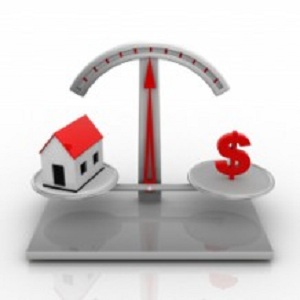
Since the time the credit crisis begun in 2008, many people have faced the problem of clearing their mortgage payments. In fact the problem has solved now up to some extent, but not completely. If you think nobody cares about you, just miss a few mortgage payments and you will be brought back to the […]
 Since the time the credit crisis begun in 2008, many people have faced the problem of clearing their mortgage payments. In fact the problem has solved now up to some extent, but not completely. If you think nobody cares about you, just miss a few mortgage payments and you will be brought back to the reality. For real estate investors, the slowing down of economy proved out to be real opportunity. A good real estate deal starts with finding the right commercial deal. All deals that sound so lucrative, have many realities hidden behind. Do not get overwhelmed by anything to your hear about a property.
Since the time the credit crisis begun in 2008, many people have faced the problem of clearing their mortgage payments. In fact the problem has solved now up to some extent, but not completely. If you think nobody cares about you, just miss a few mortgage payments and you will be brought back to the reality. For real estate investors, the slowing down of economy proved out to be real opportunity. A good real estate deal starts with finding the right commercial deal. All deals that sound so lucrative, have many realities hidden behind. Do not get overwhelmed by anything to your hear about a property.
 Getting over excited about a deal will make you blind and many essential things that deserved your attention will slip away. Nobody would love to sell a fully furnished property at a cost lower than its market value. If at all this is happening there is something you do not know about the property. It is a complete business and nothing else. If you want the benefits for yourself, struggle for it. Find the right property and right deal to invest your money. Explore the inside information about a property. The insiders will always tell you the truth behind a property that the sellers will never tell you.
Getting over excited about a deal will make you blind and many essential things that deserved your attention will slip away. Nobody would love to sell a fully furnished property at a cost lower than its market value. If at all this is happening there is something you do not know about the property. It is a complete business and nothing else. If you want the benefits for yourself, struggle for it. Find the right property and right deal to invest your money. Explore the inside information about a property. The insiders will always tell you the truth behind a property that the sellers will never tell you.
Map out a plan of action so that you do not miss out anything while making a property deal. You must have the keen observation of finding a good deal. Get familiar with the key terms used in the real estate market. Net operating income (NOI) is the gross operating income of the property in its first year. You need to have a positive NOI to get good deals. Cap rate is a jargon used for the value of income a property is capable of generating. Cash on cash is another term used by real estate investors.

People planning of investing in a commercial property need to take in to consideration a lot of thing. It is not an easy business to get in to a commercial property. Commercial investors need to consider a lot of thing form business point of view before buying a property. Investing a commercial area is also […]
 People planning of investing in a commercial property need to take in to consideration a lot of thing. It is not an easy business to get in to a commercial property. Commercial investors need to consider a lot of thing form business point of view before buying a property. Investing a commercial area is also very risky as compared to a residential area. Smart investors do not divide the two types of property. They look at the prospects of benefit a property can render them. There are quite a few benefits of investing in a commercial property, despite the risks involved.
People planning of investing in a commercial property need to take in to consideration a lot of thing. It is not an easy business to get in to a commercial property. Commercial investors need to consider a lot of thing form business point of view before buying a property. Investing a commercial area is also very risky as compared to a residential area. Smart investors do not divide the two types of property. They look at the prospects of benefit a property can render them. There are quite a few benefits of investing in a commercial property, despite the risks involved.
 Higher ROI cannot be denied in case of a commercial property. A commercial property can yield as high as 8% to 12% of return. Longer leases are available for commercial properties. Commercial tenancy can be up to 10 years where as for a residential property the tenure is mere 6 months to 12 months. Tenants tend to give more time, if the capital is invested for customizing the property. You will be free from paying any other rates or outgoings. In case of a residential property you will have to pay water bills, electricity bills etc.
Higher ROI cannot be denied in case of a commercial property. A commercial property can yield as high as 8% to 12% of return. Longer leases are available for commercial properties. Commercial tenancy can be up to 10 years where as for a residential property the tenure is mere 6 months to 12 months. Tenants tend to give more time, if the capital is invested for customizing the property. You will be free from paying any other rates or outgoings. In case of a residential property you will have to pay water bills, electricity bills etc.
In case of a commercial property, commercial tenants will pay this for you. The prices of commercial properties are lower than that of residential properties. Smaller deposits at a time will do the work on time. The commercial properties are sensitive to market conditions. The business might fail in the years of economic downturn. This is not the risk when it comes to a residential property. It takes longer to find a tenant once a commercial property becomes vacant. A commercial property can be vulnerable to supply. Hence, evaluate your risk handling capacity first then invest in a commercial property. Right decision making in time will prevent any problems later on.
 Since the time the credit crisis begun in 2008, many people have faced the problem of clearing their mortgage payments. In fact the problem has solved now up to some extent, but not completely. If you think nobody cares about you, just miss a few mortgage payments and you will be brought back to the reality. For real estate investors, the slowing down of economy proved out to be real opportunity. A good real estate deal starts with finding the right commercial deal. All deals that sound so lucrative, have many realities hidden behind. Do not get overwhelmed by anything to your hear about a property.
Since the time the credit crisis begun in 2008, many people have faced the problem of clearing their mortgage payments. In fact the problem has solved now up to some extent, but not completely. If you think nobody cares about you, just miss a few mortgage payments and you will be brought back to the reality. For real estate investors, the slowing down of economy proved out to be real opportunity. A good real estate deal starts with finding the right commercial deal. All deals that sound so lucrative, have many realities hidden behind. Do not get overwhelmed by anything to your hear about a property. Getting over excited about a deal will make you blind and many essential things that deserved your attention will slip away. Nobody would love to sell a fully furnished property at a cost lower than its market value. If at all this is happening there is something you do not know about the property. It is a complete business and nothing else. If you want the benefits for yourself, struggle for it. Find the right property and right deal to invest your money. Explore the inside information about a property. The insiders will always tell you the truth behind a property that the sellers will never tell you.
Getting over excited about a deal will make you blind and many essential things that deserved your attention will slip away. Nobody would love to sell a fully furnished property at a cost lower than its market value. If at all this is happening there is something you do not know about the property. It is a complete business and nothing else. If you want the benefits for yourself, struggle for it. Find the right property and right deal to invest your money. Explore the inside information about a property. The insiders will always tell you the truth behind a property that the sellers will never tell you.
 People planning of investing in a commercial property need to take in to consideration a lot of thing. It is not an easy business to get in to a commercial property. Commercial investors need to consider a lot of thing form business point of view before buying a property. Investing a commercial area is also very risky as compared to a residential area. Smart investors do not divide the two types of property. They look at the prospects of benefit a property can render them. There are quite a few benefits of investing in a commercial property, despite the risks involved.
People planning of investing in a commercial property need to take in to consideration a lot of thing. It is not an easy business to get in to a commercial property. Commercial investors need to consider a lot of thing form business point of view before buying a property. Investing a commercial area is also very risky as compared to a residential area. Smart investors do not divide the two types of property. They look at the prospects of benefit a property can render them. There are quite a few benefits of investing in a commercial property, despite the risks involved. Higher ROI cannot be denied in case of a commercial property. A commercial property can yield as high as 8% to 12% of return. Longer leases are available for commercial properties. Commercial tenancy can be up to 10 years where as for a residential property the tenure is mere 6 months to 12 months. Tenants tend to give more time, if the capital is invested for customizing the property. You will be free from paying any other rates or outgoings. In case of a residential property you will have to pay water bills, electricity bills etc.
Higher ROI cannot be denied in case of a commercial property. A commercial property can yield as high as 8% to 12% of return. Longer leases are available for commercial properties. Commercial tenancy can be up to 10 years where as for a residential property the tenure is mere 6 months to 12 months. Tenants tend to give more time, if the capital is invested for customizing the property. You will be free from paying any other rates or outgoings. In case of a residential property you will have to pay water bills, electricity bills etc.